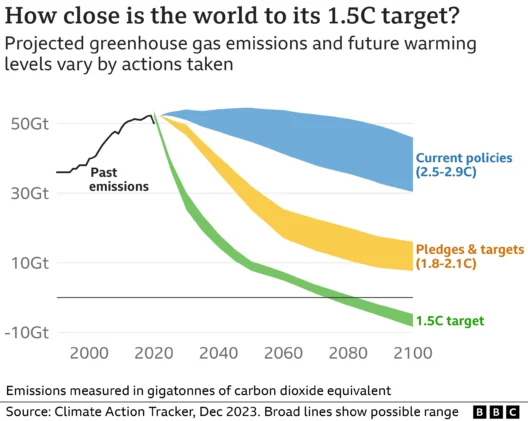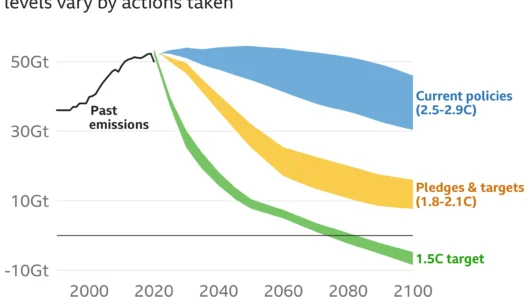Climate change has emerged as one of the most pernicious challenges that humanity faces today. Its implications are far-reaching, affecting ecosystems, economies, and ultimately, our very existence on this planet. Yet the question persists: Are we genuinely exerting ourselves to combat climate change effectively? This inquiry necessitates a comprehensive exploration of governmental policies, corporate accountability, individual actions, and societal attitudes toward environmental stewardship.
To begin, one must acknowledge that the scientific consensus on climate change is unequivocal. The Intergovernmental Panel on Climate Change (IPCC) has outlined a series of alarming projections based on current trajectories, emphasizing the critical need for reduced greenhouse gas emissions. However, the actions taken by various stakeholders do not seem to parallel the severe warnings issued by scientists. This discord raises a vital concern about the adequacy of our collective response.
Governments play an instrumental role in shaping policies that can either mitigate or exacerbate climate change. While certain nations have made notable strides—most prominently, Sweden and Denmark—others persist in a dance of political rhetoric and inaction. The Paris Agreement serves as a global framework for climate action, yet many signatories consistently fall short of their commitments. For instance, numerous countries have failed to submit updated Nationally Determined Contributions (NDCs), which outline their intended emission reduction targets. This inconsistency denotes a lack of genuine urgency, revealing the struggles of balancing economic growth with environmental preservation.
An oft-cited barrier to effective action is the entrenchment of fossil fuel industries in political and economic systems. Subsidies for oil, gas, and coal continue to overshadow investments in renewable energy sources, effectively perpetuating a carbon-intensive status quo. The allure of short-term economic gains frequently outweighs the pressing need for long-term sustainability. This contradiction shines a spotlight on the complex interplay between policy and vested interests, hinting at a failure to grasp the gravity of climate change’s implications.
Transitioning to a low-carbon economy is not merely a technological challenge; it is a sociopolitical imperative. The public must galvanize to demand actionable, transparent policies from their governments. However, apathy often prevails. A common observation is that while environmental issues populate news cycles, they do not garner the sustained attention required to incite meaningful change. The transient nature of media coverage can dull public engagement, leading to feelings of helplessness among individuals who may feel their contributions are insignificant in the grand scheme.
Yet, individual actions, while seemingly minor, accumulate and can wield substantial influence. Grassroots movements have demonstrated the potential of collective advocacy, as seen in events like the Global Climate Strikes. Such demonstrations evoke a shared urgency and demand accountability, underscoring the power of societal mobilization. Nevertheless, individual efforts can only supplement systemic reforms and should not be seen as replacements for robust governmental and corporate action.
Corporate responsibility, too, is a facet that cannot be overlooked. Many companies have adopted sustainability initiatives, committing to net-zero targets. However, greenwashing—the practice of conveying a false impression of environmental responsibility—abounds. It becomes increasingly imperative to critically assess corporate claims and to champion transparency. Stakeholders must ensure that commitments are backed by tangible actions rather than hollow promises, revealing their true dedication to mitigating climate change.
Disparities in climate change impacts across different socioeconomic groups further complicate the narrative. Vulnerable communities, particularly in developing nations, often lack the resources to adapt to climate-related disasters. This exacerbates existing inequalities, leading to debates on climate justice that argue for equitable distribution of both responsibilities and resources. The moral dimensions of climate action cannot be overstated, as those least responsible for emissions often suffer the most severe consequences.
Public perception of climate change is also influenced by cultural and ideological factors. In jurisdictions where climate change denial persists, meaningful dialogue is stifled, and attempts at progress become stymied. The cultivation of an informed and engaged citizenry is paramount, necessitating robust education that elucidates the science of climate change and its multifaceted implications. Society must transcend partisan divides to recognize that climate change is not a political issue but rather a universal phenomenon that requires collective intervention.
With the technological advancements in renewable energy, carbon capture, and sustainable agriculture, the tools to address climate change are within reach. However, the political will necessary to implement transformative change remains elusive. It is crucial that stakeholders at all levels—governments, corporations, and individuals—recognize the urgency of enacting comprehensive policies that promote resilience and sustainability.
Ultimately, the question remains: Are we trying hard enough to stop climate change? The answer appears complicated. On one hand, a multitude of initiatives and movements demonstrates a growing awareness and desire for change. On the other hand, the persistent inaction of powerful entities coupled with societal ambivalence indicates a critical gap. Bridging this divide requires a concerted effort and commitment from every sector of society, underscoring the collective responsibility that lies ahead.
In conclusion, while the enormity of climate change may seem daunting, the potential for meaningful action exists. Each increment of effort, each policy enacted, and each individual mobilized can contribute to a robust response. The time for complacency is over; the task at hand demands unwavering resolve. With informed, coordinated, and audacious actions, humanity can strive to not just combat climate change, but to emerge resiliently from its shackles.






